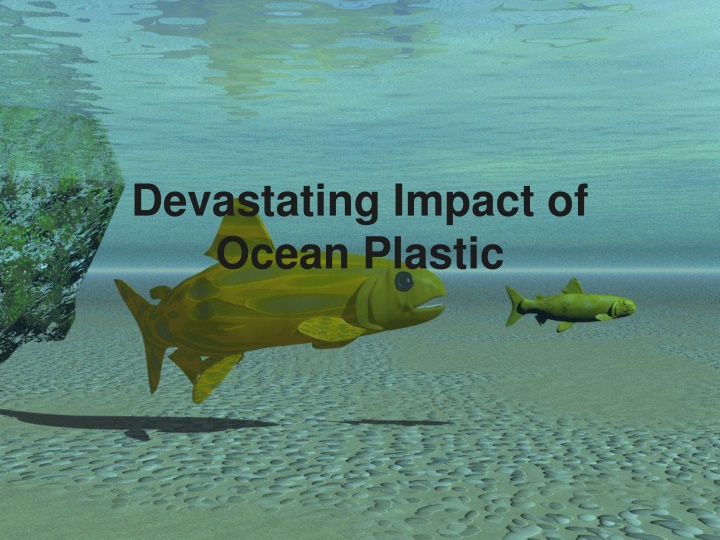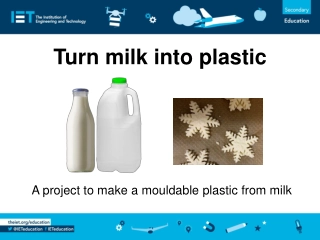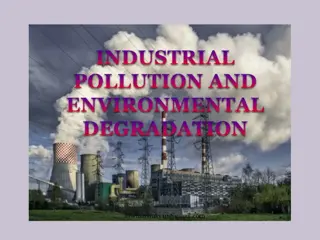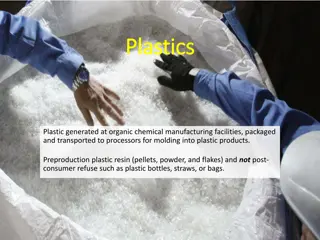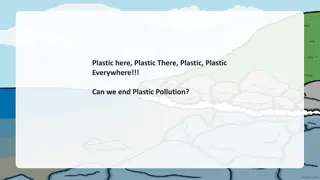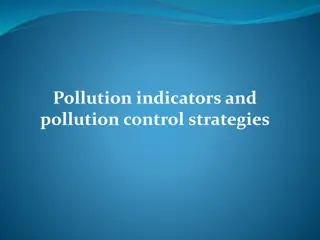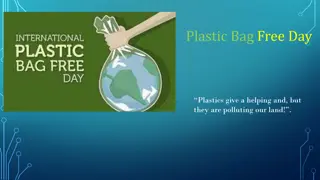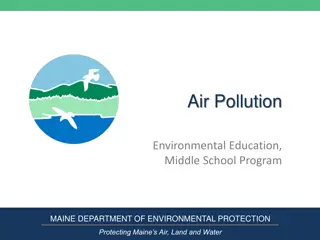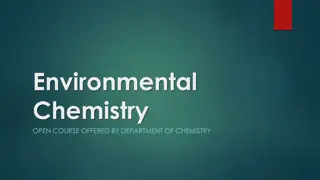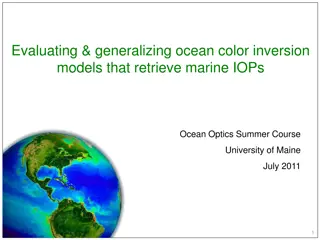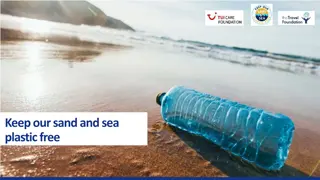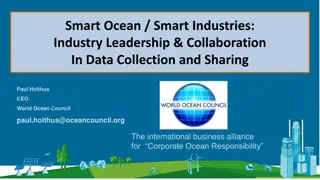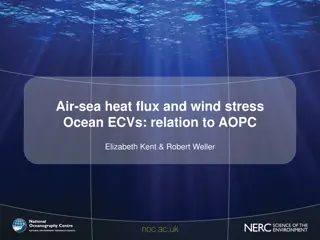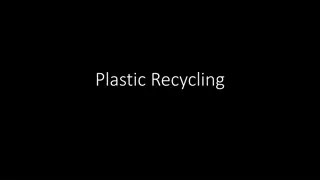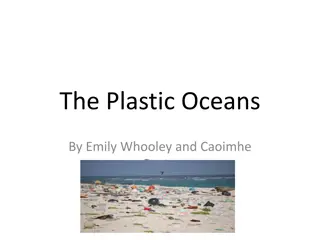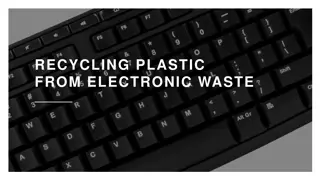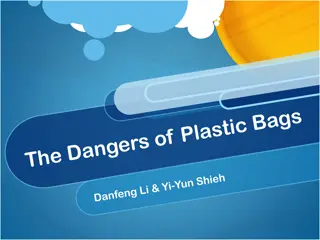Alarming Impact of Ocean Plastic Pollution
The oceans, essential for life on Earth, are facing a crisis due to the staggering amount of plastic waste being dumped into them. This pollution disrupts marine ecosystems, threatens biodiversity, and harms marine life. Urgent action is needed to reduce plastic use, recycle responsibly, and safeguard our oceans before irreparable damage is done.
Download Presentation

Please find below an Image/Link to download the presentation.
The content on the website is provided AS IS for your information and personal use only. It may not be sold, licensed, or shared on other websites without obtaining consent from the author.If you encounter any issues during the download, it is possible that the publisher has removed the file from their server.
You are allowed to download the files provided on this website for personal or commercial use, subject to the condition that they are used lawfully. All files are the property of their respective owners.
The content on the website is provided AS IS for your information and personal use only. It may not be sold, licensed, or shared on other websites without obtaining consent from the author.
E N D
Presentation Transcript
Devastating Impact of Ocean Plastic
Science fiction writer Arthur C. Clarke is once quoted saying, How inappropriate to call this planet earth when it is quite clearly Ocean. Well, perhaps if it were called ocean, people would be a lot more concerned about what is happening to our marine environments, which are in terrible trouble.
According to NOAA, the worlds oceans hold more than 97 percent of the planet s water and may be home to as much as 80 percent of the world s plant and animal species. Without our oceans, life as we know it would cease to exist. These vast bodies of water help regulate weather patterns, they absorb almost one-third of the carbon dioxide we emit, provide many people with vital sources of protein, and most importantly, nearly 70 percent of the oxygen in our atmosphere is produced by marine plants. Without healthy, thriving ocean ecosystems, we would be cooked!
Unfortunately, as we continue to dump more and more plastic into the oceans, this essential ecosystem is starting to collapse. Every year, around 8.8 million tons of plastic trash end up in the oceans. The majority of this trash ends up sinking to the bottom of the oceans or getting swept up in massive gyres, so it can be easy to overlook this problem from the vantage point of land. Scuba divers, who spend their time beneath the surface, however, are constantly faced with the reality of this plastic problem.
Reduce the use of plastics and dispose of them responsibly when you must use them. If a biodegradable plastic is available, use that instead of the non-biodegradable ones. Recycle those that can be recycled Cut openings so animals won t get stuck in them. BECAUSE . . . .
We have a tendency to think that when we throw out trash it just goes away! Well this is where away is.
While it might just look like this is a mound of trash, this is actually a photo of a sea crab.
Plants, animals, and trash all float in a tangled mass on the surface.
Many marine animals, some which have never even seen a human, are now finding themselves the victims of human behavior, many miles away.
Even creatures like coral, which are an essential nursery for ocean life, are coming under threat. This large piece was sliced off by a discarded fishing line.
It is estimated that around 700 marine species are in danger of extinction due to plastic pollution.
Discarded piles of rope and fishing nets like these are a hazard to aquatic life.
By working hard to clear out some of the trash accumulating on the ocean floor, the amazing people working with Project Aware are making a difference, one trash bag at a time.
A Band Aid, Not a Cure Hopefully, by documenting this problem and garnering clean up efforts, Project Aware will inspire others to help, in whatever way that they can. Cleaning up at your nearest river, lake or beach is a great way to help, but prevention is the best cure. Check out these awesome resources to learn how you can reduce your own plastic trash to make a difference:
This doesnt consider the damage from chemicals released to the sea.
The Great Pacific Garbage Patch
Plastic rope and more plastic in the ocean. This is part of the large islands of plastic which are developing in the middle of our oceans.
